Frame
The Technology in Society Cluster seeks to bring together practitioners and academics engaged in studying the various implications of technology for developing country contexts. This represents a departure from a focus on the target markets and applications of the earliest Information and Communication Technologies (ICTs), which were largely more economically developed contexts.
Context
Since the commercial introduction of the modern smartphone in 2007, the world has witnessed technological innovation at breakneck speed, whether in the miniaturization of computing power, or advancements in data compression and analytics. At the same time, technology has introduced critical disruptions into social, economic and political equilibria that require careful study. In Pakistan, Information Technology (IT) is a growing industry with a promising future. Pakistan has seen an increased growth in the use of ICTs in the last decade to find solutions for socio-economic development. This provides a plethora of opportunities to gauge the overall impact of technological advancement in Pakistan; including development efforts, the field of data analytics and everyday lives of the citizens, among others.
Research Problems
The cluster seeks to investigate the following areas:
- Technology for Development (T4D): How can existing and novel technologies be used to engineer solutions to development problems? What unintended consequences do they create? How are superior solutions to be designed? We investigate the impact of technologies, and use the opportunity to deepen our understanding of the underlying context in which they emerge and become embedded.
- ICT for Data Analytics: With new technologies has emerged a deluge of granular data, and a range of applications in predictive modelling through machine learning tools for key sectors like agriculture, organisational management and the law. What implications and functionalities do these new approaches hold for improved decision-making and increased productivity in cost-effective, even equitable, manners? How do advances in related technologies, such as web scraping and machine learning for speech and image recognition/analysis, mediate costs, hence volume, of digitised data?
- Technology for Citizens: What are the implications of reduced privacy, fake news and increased censorship for justice, the media, and democracy? Has technology brought us closer together, or made us insular? What are the impacts of these phenomena on human psychology and well-being? Can we document variously manifesting political, sociological, and cultural effects of technology on behavioural norms in contemporary society? Recognising the transdisciplinary nature of the rapidly changing world of information and computing technology, this cluster seeks to further our understanding of this exciting and consequential dynamic. From engineers and social scientists to state, private-sector, and commercial partners, the cluster brings together the most relevant stakeholders in technology for a critical engagement with some of the most pressing policy and development questions of our times.
Related Fellows
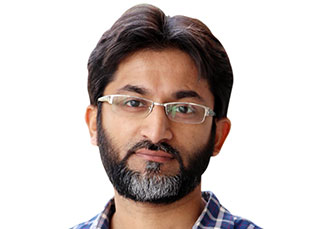
Dr. Murtaza Taj earned his Ph.D. and M.Sc. degrees in electronic engineering and computer science from the Queen Mary University of London (QMUL), United Kingdom, in 2009 and 2005, respectively. Currently, he is an Assistant Professor and Faculty Director of the Computer Vision and Graphics Lab and Technology for People Initiative at the Lahore University of Management Sciences, Syed Babar Ali School of Science and Engineering, Pakistan. He is also an adjunct faculty at the Ontario Tech University, Canada. His research interest lies in the area of Computer Vision, Graphics and Image Processing. His recent work involves satellite image processing for automatic extraction of socio-economic indicators.

Talha currently serves as an Assistant Professor at the Center for Water Informatics and Technology (WIT) at LUMS. At the Center, he is involved in modelling and decision making for socio-hydrological systems with a focus on water in agriculture. He is also leading field investigations to study the operational hydrology of small rain-fed catchments through the deployment of hydrometeorological sensor networks and associated technologies.
Talha Manzoor is generally interested in the modelling, control, and estimation of socio-ecological systems where environmental phenomena overlap with societal and technological processes. He is especially intrigued by behavioral processes that lead to unexpected outcomes in complex systems. In his research he employs tools from systems and control theory, treating human behavior as a fundamental component of the system, as opposed to the conventional incorporation of human behavior as disturbances, exogenous inputs, or uncertainties.
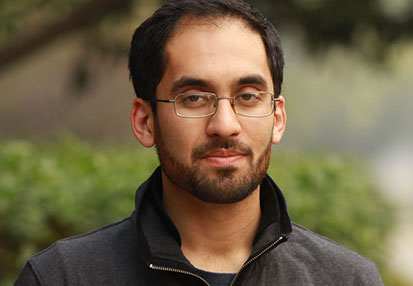
Ali Hasanain is an Associate Professor and the Head of the Economics Department at the Lahore University of Management Sciences (LUMS). He is also a member of Evidence in Governance and Politics (EGAP), a member of the research board of PRIME Institute, a Fellow of the Consortium of Development Policy Research (CDPR), and a faculty advisor at the Technology for People Initiative (TPI).
His research focuses primarily on how public service delivery can be improved through reform initiatives, particularly through technological progress and improvements in the media. He also studies how information and communication technologies (ICT) can improve market functioning.
Previously, he directed the LUMS engagement on the World Bank’s Pakistan At One Hundred Initiative, which sought to support greater debate and study Pakistan’s medium term future, out to the year 2047. He has also previously been a member of the Punjab Government’s Economic Advisory Committee. With his colleagues, Dr. Hasanain designed and implemented an ICT-based monitoring pilot in partnership with the provincial government of Punjab in 2011. He also served as South Asia Team Leader for a Global Development Network (GDN) policy research project during 2011-2012.
Ali Hasanain received his PhD from George Mason University in 2010. From 2014 to 2016, he was a Global Leaders Fellow at Oxford and Princeton universities.
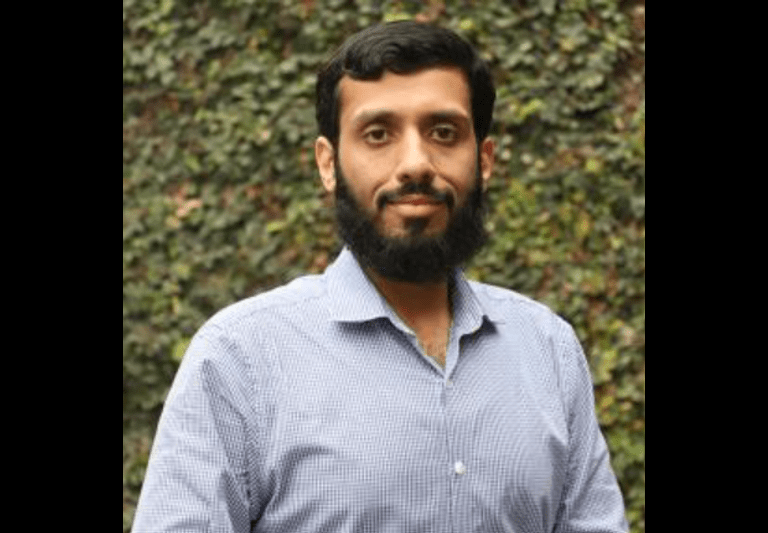
Hassan Jaleel is an Assistant Professor at the Syed Babar Ali School of Science and Engineering, LUMS. His research interests are in the areas of real-time distributed optimization, game theory, and stochastic geometry. Dr. Jaleel is interested in designing learning mechanisms with global performance guarantees for self-interested agents in large-scale complex networks. Typical application domains of his research include swarm robotics, sensor networks, and irrigation networks. Dr. Jaleel was a Fulbright scholar from 2009–2013 and is a member of IEEE.
Dr. Jaleel received his M.S. and Ph.D. degrees in Electrical and Computer Engineering (ECE) with a specialization in Systems and Control from the Georgia Institute of Technology, Atlanta, GA, USA.
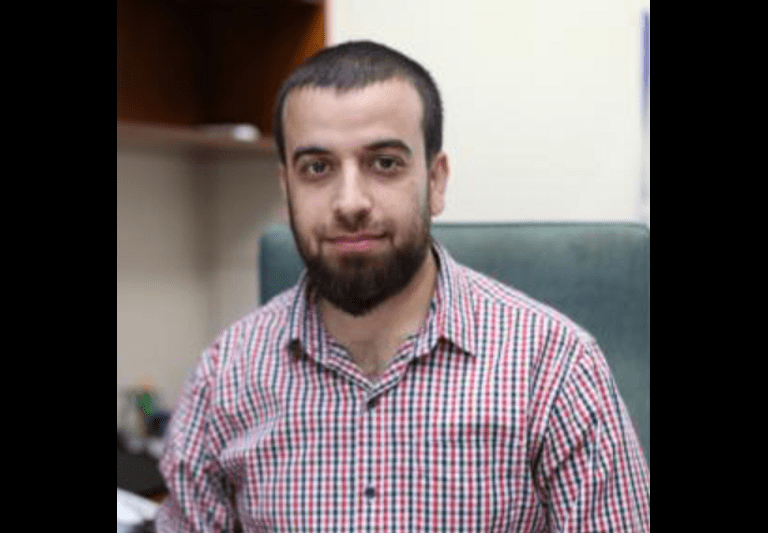
Muhammad Hamad Alizai is an Associate Professor of Computer Science at the Syed Babar Ali School of Science and Engineering, LUMS. He brings years of experience as a faculty, researcher, software engineer, and technical lead both in industrial and academic settings.
Dr. Alizai has authored a book and published more than 60 scientific papers while abroad and indigenously from Pakistan, several of them in top-flight ACM/IEEE journals and conferences (CoNEXT, SenSys, IPSN, BuildSys, LCTES, EWSN, TOSN, TECS, CCR). He regularly serves on the organizing and program committees of leading CS conferences such as MobiSys, SenSys, IPSN, BuildSys, SECON, IMWUT, and PerCom. He is a certified trainer for Instruction Skills Workshop and regularly conducts pedagogical workshops for faculty at LUMS.
Dr. Alizai has received the Vice Chancellor’s Award for Teaching Excellence (2022), and Georg Forster Research Fellowship Award (2021-22), and has been the Best Paper Award candidate at ACM EWSN (2020).

Dr. Ihsan Ayyub Qazi is an Associate Professor and the Chair of the Department of Computer Science at SBASSE, LUMS. He received his Ph.D. in Computer Science from the University of Pittsburgh, USA in 2010 and his BSc. (Hons) degree from LUMS with a double major in Computer Science and Mathematics in 2005. He was a Visiting Research Scientist at the University of California, Berkeley, in 2017. Previously, he has also held positions at the Center for Advanced Internet Architectures, Australia and BBN Technologies, USA.
He is a recipient of the prestigious Google Faculty Research Award for his work on making the Web faster in the developing world. He is also a co-recipient of the prestigious Facebook Integrity Foundational Research Award in 2019 and 2020 for his work on combating misinformation on social media. His research interests are in networked systems, ICT for development, online privacy, and public policy. His research works have appeared in the most prestigious networking conferences and journals such as ACM SIGCOMM and IEEE/ACM Transactions on Networking. His work on Facebook’s Free Basics platform won the best paper award at ACM SIGCOMM CCR in 2018. He is regularly invited to deliver seminars at leading Universities and companies such as MIT, Stanford, UC Berkeley, CMU, Google, Microsoft Research, and Facebook among others.

Dr. Hassan Mohy-ud-Din is the Director of the Clinical and Translational Imaging lab and an Assistant Professor at the LUMS School of Science and Engineering. He completed his Ph.D. and MSE in
Electrical and Computer Engineering and MA in Applied Mathematics and Statistics from Johns Hopkins University (2009 – 2015). From 2015 – 2017 he was a postdoctoral associate in the Department of Radiology and Biomedical Imaging at the Yale School of Medicine. From 2017 – 2018 he was a Clinical Research Scientist at Shaukat Khanum Memorial Cancer Hospital and Research Centre. His research lies at the intersection of Applied Mathematics and Medical Imaging. His work on dynamic cardiac PET imaging won the 2014 SNMMI Bradley-Alavi fellowship and the 2014 SIAM student award.
He is also a recipient of the 2019 Charles Wallace Fellowship from the British Council, Pakistan. His work on non-invasive biomarker quantification for coronary microcirculation was featured as a news story in Medical Physics followed by a dedicated review article from Stanford. He also serves as a reviewer on major scientific journals (Clinical Cancer Research, Neuro-oncology Advances, Medical Image Analysis, Neuroimage, Physics in Medicine and Biology, Medical Physics, IEEE Transactions on Image Processing to name a few) and is a member of IEEE and SIAM societies. He also carries a university teaching experience of over 15 years (UET Lahore, SBASSE LUMS, and Johns Hopkins University) and is deeply interested in the development, implementation, and evaluation of (pragmatic and effective) pedagogical approaches in schools and colleges.

Hassan Javid is an Associate Professor of Sociology at the Mushtaq Gurmani School of Humanities and Social Sciences, LUMS.
Dr. Javid’s research broadly looks at questions related to class, state, and power, with a specific focus on how the institutional legacy of colonialism affects contemporary politics in Pakistan. At present, he is working on several different projects: a book manuscript that explores the mechanisms through which landed elites have been able to reinforce and reproduce their power in Pakistan from the colonial era to the present day; and a study of the history of public welfare provision in Pakistan that seeks to identify and explain the factors impeding efforts at reforming and expanding the provision of healthcare while also exploring how recent innovations in digital governance offer the potential for developing state capacity to implement specific forms of welfare provision such as cash transfers.
He completed his Ph.D. in Sociology at the London School of Economics and Political Science, where he also spent some time as an LSE Fellow in Political Sociology.
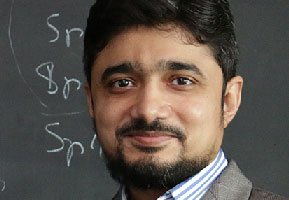
Dr. Agha Ali Raza is an Assistant Professor of Computer Science at LUMS, and also the founding director of the Center for Speech and Language Technologies. He is a Fulbright Scholar. He received his Ph.D. from the Language Technologies Institute at Carnegie Mellon University, Pittsburgh, USA. His research interests include Speech & Natural Language Processing, Speech-based Human-Computer Interfaces, and Information & Communication Technologies for Development (ICT4D).
His research aims to enable information access and social connectivity for under-connected and under-served populations (low-literate, low-income, tech naïve, visually impaired, linguistically/socially marginalized, and geographically remote communities, and oral cultures) throughout the developing world. His work focuses on the development of speech-based information services and social networks accessible over simple and feature phones to be used as vehicles for large-scale dissemination of development-related information, pulling information in the form of real-time surveys and for performing randomized controlled trials and demographic studies. These services also provide target marginalized populations with a voice and a digital social identity.
His work in Speech and Language technologies is focused on the localization of linguistic resources and techniques to the Pakistani context for the development of Speech Recognition, Text-to-Speech, Voice-biometrics, Spoken Term Detection, and relevant capabilities. He teaches Natural Language Processing, Speech Processing, and Machine Learning at the graduate and undergraduate levels. His research has been funded by prestigious organizations including Facebook, Google, UNICEF, GIZ, the National Institutes of Health (NIH), the National Academies of Sciences, Engineering, Medicine, Keck Futures Initiative, and the Higher Education Commission of Pakistan.
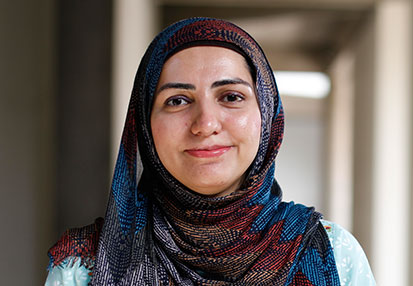
Dr. Ayesha Ali is an Assistant Professor in Economics at the Lahore University of Management Sciences. She does research in applied microeconomics with a focus on topics in energy economics and information economics.
Her research makes use of large administrative data sets, field data collection, and rigorous empirical analysis to answer policy relevant questions. Her current research examines the effect of electricity outages on household welfare, the effectiveness of policies to control electricity theft, understanding and countering misinformation on social media among low digital literacy populations, competition and news media quality, and the economic consequences of internet censorship. She completed her PhD in Economics from the University of Toronto, Canada in 2016.

Dr. Mobin Javed is an Assistant Professor of Computer Science at LUMS. Dr. Javed received her Doctorate in Computer Science from UC Berkeley in 2016. She then spent a year as a post-doctoral research scholar at the International Computer Science Institute, Berkeley, before returning to Pakistan in early 2018. She holds her bachelor degree from the National University of Sciences and Technology (NUST), Pakistan.
Dr. Javed is a data enthusiast at heart, interested in harnessing the power of data science to solve problems with real world impact. Her research primarily focuses on analyzing data from large-scale networked systems to understand various properties of the Internet, and to develop practically deployable solutions for fighting cyber threats.
Dr. Javed is a data enthusiast at heart, interested in harnessing the power of data science to solve problems with real world impact. Her research primarily focuses on analyzing data from large-scale networked systems to understand various properties of the Internet, and to develop practically deployable solutions for fighting cyber threats.
Her industry experience and fellowships include the Data Science for Social Good Program at the University of Chicago (2016), Microsoft Research, Redmond (2014), and Impermium (2013 – acquired by Google). Her awards and honors include a Distinguished Paper Award at USENIX Security 2017, the Internet Defense Prize 2017 ($100K award by Facebook), and the Applied Networking Research Prize 2019. She also takes a keen interest in social impact. As a Data Science for Social Good (DSSG) 2016 fellow, she worked with the Government of Mexico to find data-driven solutions for mitigating poverty in the country. Dr. Javed is also the co-founder of GradApp Lab, Pakistan, a mentoring effort that connects aspiring graduate school applicants with mentors abroad.
In her leisure time, Dr. Javed enjoys running, hiking, and practicing yoga. She is a long-distance runner and has participated in the San Francisco half marathon and Big Sur Relay runs. She also enjoys traveling around the world; her recent travels have taken her to the majestic glaciers and waterfalls of Iceland.

His primary research interests are in the areas of security, privacy and Internet measurement. His recent work focuses on social networks, online fraud and cybercrime and his previous work looked at enabling public sector reform through technology and the use of information and communication technologies for development.
Dr. Fareed is particularly interested in the use of program analysis techniques to make software efficient, compact and secure.
Suleman Shahid is an Assistant Professor of Computer Science at the Syed Babar Ali School of Science and Engineering, LUMS. Dr. Shahid directs the ‘Computer-Human Interaction and Social Experience Lab’ (CHISEL).
His research interests include assistive technologies (mobile apps and VR/AR systems) to enhance the quality of life of persons with disabilities (e.g. autism, dyslexia, visual impairment) and older adults, educational technologies for children (child-computer interaction), and affective computing. More recently he has become interested in ‘information and communication technologies for development’ (ICT4D) where he takes a multidisciplinary approach to designing interventions in the areas of education and health. Since 2009, he has been offering consultancy and training services in the areas of design thinking and user experience (UX) design and strategy.
Dr. Shahid received his Ph.D. in human-computer interaction in 2011 from Tilburg University, the Netherlands, and PDEng (Professional Doctorate in Engineering) in 2007 in the User System Interaction program from the Eindhoven University of Technology, the Netherlands.
Bilal Siddiqi serves as Director of Research and Growth at The Life You Can Save, where he lead in-house research and evaluation and help set strategy for charity selection, fundraising, and partnerships.
Dr. Siddiqi is a development economist working on poverty, institutions, and conflict in low- and middle-income countries. His academic research applies experimental methods to fundamental problems of development. His work has been published in the Quarterly Journal of Economics, Science, Lancet, and others, and covered by the New York Times, the Washington Post, NPR, CBS, New York Magazine, Voice of America, Le Monde, VoxEU, the Daily Mail, Economic, and Political Weekly, the Hindustan Times, Público, El Espectador, and several other outlets.
Dr. Siddiqi has also received generous support from the UK’s Foreign and Commonwealth Development Office, USAID, the US DoD’s Minerva Research Initiative, the World Bank, the UN Peacebuilding Fund, the Open Society Foundation, 3ie, the International Growth Centre, and Stanford University
Dr. Siqqiqi is also a non-resident fellow at the Center for Global Development, a member of Evidence in Governance and Politics, a research affiliate of the International Growth Centre and Innovations for Poverty Action, and a fellow of the Centre for Economic Research in Pakistan, the Consortium for Development Policy Research and the Mahbub Ul Haq Research Centre.
Dr . Siddiqi received his Ph.D. and M.Phil. in Economics from Oxford University, where he studied as a Rhodes Scholar.
Dr. Ammar Ahmed Khan is an Assistant Professor at the Syed Babar Ali School of Science and Engineering, LUMS. At present, the focus of Dr. Ammar’s research is on understanding the self-assembly mechanisms of liquid crystalline physical gels, and applying them to DSSCs to increase the stability and lifetime. Furthermore, the interaction of organic-semiconductors with two-dimensional materials is also being investigated for chemical and biological sensing applications.
Dr. Khan completed his Ph.D. studies at the University of Cambridge. The focus of his Ph.D. research was studying the application of disc-like (discotic) liquid crystals as hole transport layers in hybrid organic/in-organic dye-sensitized and perovskite solar cells. Furthermore, he also studied the interaction of liquid crystalline phases with two-dimensional graphene layers for display and lasing devices.
‘Dr. Sameen A. Mohsin Ali completed her PhD in Politics from SOAS University of London in 2018. Her doctoral thesis, “Staffing the State: The Politicisation of Bureaucratic Appointments in Pakistan”, explores the use of bureaucratic appointments by both politicians and bureaucrats to achieve particular outcomes. Sameen’s teaching and research interests include bureaucratic and party politics and public health governance. She is currently working on a project, “Understanding Pakistan’s Immunization Problem: A transactional approach”, with Dr Samia W. Altaf, funded by the Shahid Hussain Foundation’s Public Health Research Grant 2018-19 and 2019-20, and the Faculty Initiative Fund 2020-21.
Sameen is a faculty lead at the Technology for People Initiative (TPI), a non-profit applied research centre based at LUMS.
Dr. Maryam Mustafa is a PhD in Computer Science from the Technical University of Braunschweig, Germany and is an Assistant Professor at the Lahore University of Management Sciences, Pakistan. She is a Fulbright scholar with a Masters from Cornell University, NY.
Dr. Mustafa’s research interests are in human-computer interaction (HCI), mixed realities and information and communication technologies and development (ICTD). Her focus is on designing, building, and evaluating novel computing systems for/with underserved populations in the Global South with a specific focus on the gendered design of technologies in patriarchal contexts. Broadly she is interested in understanding the social, technical, and access constraints of diverse populations and creating new technologies to address their unique contexts and aspirations. Her work has been funded by the Gates foundation, National Academy of Sciences and IDRC.
Zubair Khalid is an Associate Professor at the Syed Babar Ali School of Science and Engineering, LUMS. Dr. Khalid’s research is focused on the development of new signal processing techniques to analyze signals defined on the sphere, analysis and processing of signals defined on the sphere find applications in various fields of science and engineering, such as cosmology, geophysics, acoustics, and medical imaging.
Dr. Khalid was awarded University Gold Medal and Industry Gold Medals from Siemens and Nespak for overall outstanding performance in Electrical Engineering during his undergraduate studies. Additionally, he was a recipient of an Endeavour International Postgraduate Award for his Ph.D. studies.
Dr. Khalid received his Ph.D. degree in Engineering from the Australian National University of Canberra, Australia in 2013
Dr. Qaisar Khan is serving as an Assistant Professor at the School of Education, LUMS. Previously, he taught basic economics as a lecturer and microeconomics, development economics and research methods as a teaching fellow at KDI School of Public Policy and Management, South Korea. He has also worked as a research fellow in the project titled “international study of learning in higher education,” a joint collaboration of KDI School and Stanford University. Besides, he has over seven years of work experience in managing and implementing development projects with various national and international organizations in Pakistan.
Dr. Qaisar Khan is serving as an Assistant Professor at the School of Education, LUMS. Previously, he taught basic economics as a lecturer and microeconomics, development economics and research methods as a teaching fellow at KDI School of Public Policy and Management, South Korea. He has also worked as a research fellow in the project titled “international study of learning in higher education,” a joint collaboration of KDI School and Stanford University. Besides, he has over seven years of work experience in managing and implementing development projects with various national and international organizations in Pakistan.
Dr. Khan obtained his PhD in Development Policy from KDI School of Public Policy and Management, South Korea, and a Masters in Development Policy with majors in Public Finance and Social Policy from the same institute. His research interests lie in applied microeconomics particularly in education, health and labor. His recent research examined the causal link between fertility (quantity) and educational outcomes (quality) within families in Pakistan. His work is the first to attempt quality-quantity tradeoff in Pakistan. His research also studied the effect of family planning exposure on fertility choices and reproductive health care in rural Pakistan.
Dr. Sahar Asad is Assistant Professor of Economics at the Lahore University of Management Sciences (LUMS). She received her Ph.D. in Economics from George Washington University in 2016. Her research interests are primarily in the area of empirical development economics. She uses both experimental and quasi-experimental methods to answer questions within development economics.
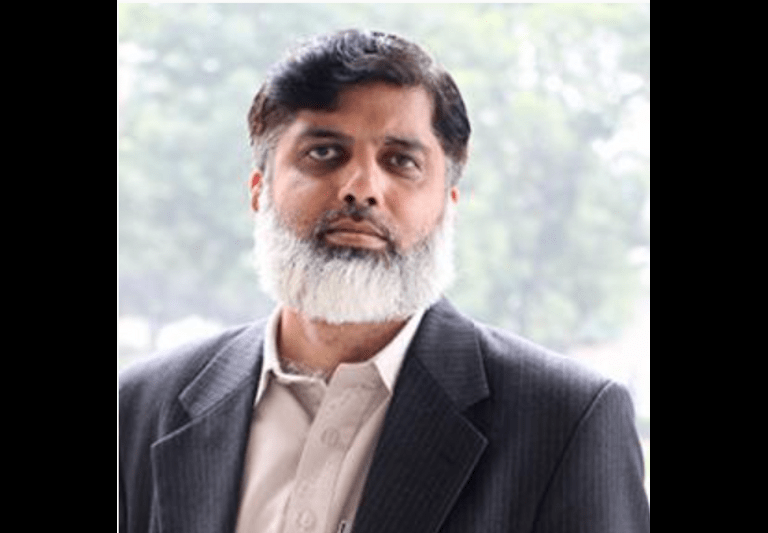
Mian Muhammad Awais is an Assistant Professor at the Syed Babar Ali School of Science and Engineering, LUMS.
Prior to joining LUMS, Dr. Awais conducted European Union research and development projects for a UK-based SME. His Ph.D. work is related to the development of online models for the parametric estimation of solid fuel-fired industrial boilers. Dr. Awais has also conducted research work on a class of iterative methods pertinent to Krylov subspaces for optimization, such as the oblique projection and implicitly restarted model reduction methodologies.
Dr. Awais received his Ph.D. from Imperial College, University of London.

Sabrin Beg is an Assistant Professor of Economics at the Lerner College of Business and Economics of the University of Delaware. Beg has a Ph.D. in Economics from Yale University, with a primary area of expertise in development, economic history, political economy, and applied microeconomics. Beg is currently working on projects in the above fields in Pakistan, Bangladesh, Ghana, and India. Recent work by Beg attempts to understand the process of structural change in developing economies, with a focus on property rights, gender, and human capital.
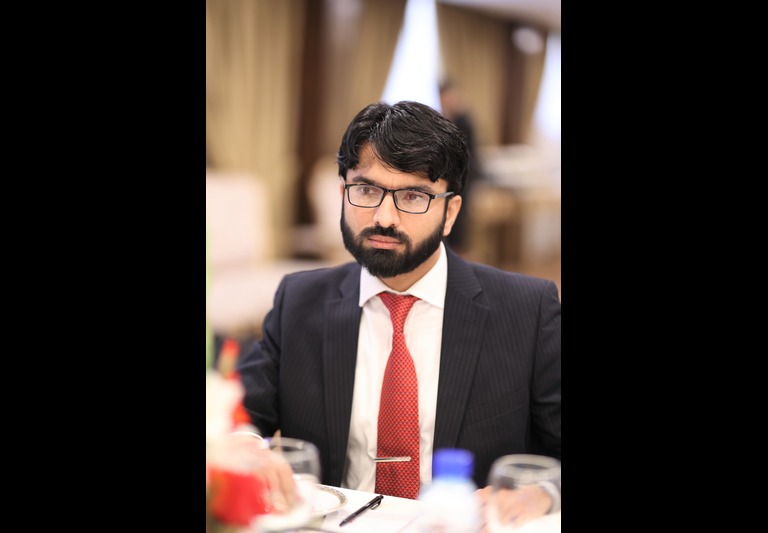
Usama Khawar currently serves as the Assistant Advocate General, Punjab at the Office of Advocate General Punjab, where he contributes to legal advocacy and policy formulation. In addition, he holds the role of adjunct faculty at the Shaikh Ahmad Hassan School of Law (SAHSOL) at LUMS, teaching courses on constitutional law and policy.
With a multifaceted approach to legal advocacy, Usama has demonstrated a profound interest in labor law and policy. His extensive litigation and advocacy efforts before the Supreme Court of Pakistan have led to significant advancements in the field of occupational safety and health (OSH), especially in the Punjab. Notably, his contributions played a pivotal role in the formulation of a comprehensive law on occupational safety and health in the province. As a testament to his expertise in this area, Usama authored a comprehensive report on OSH, published by the Human Rights Commission of Pakistan (HRCP).
In addition to his work in labor law and policy, Usama has been actively involved in advising the Punjab Government and Provincial Assembly on matters related to Local Government Law and Prison Reforms. He has been appointed to official committees constituted by the Punjab Government, where his insights and recommendations have informed key policy decisions.
Usama's research interests extend beyond labor law to encompass justice system reforms, policing, and local governance. He is a regular contributor to DAWN, a leading national newspaper, where he shares his insights on legal and policy matters. Additionally, Usama frequently appears on television programs to discuss pertinent issues related to law and policy, further amplifying his impact on public discourse.
Educationally, Usama holds a Master's degree from Columbia University, where he specialized in constitutional law. He further enriched his academic pursuits by obtaining another Master's degree from Central European University in Comparative Constitutional Law, solidifying his expertise in legal and policy domains.
In his capacity as a legal professional, Usama has actively championed the cause of local governments in Pakistan for over six years, engaging in litigation, organizational endeavors, and the creation of a groundbreaking course on Local Governments in Pakistan. His multifaceted contributions reflect his unwavering dedication to advancing democratic principles, social justice, and labor rights in the country.
Postal Address
LUMS
Sector U, DHA
Lahore Cantt, 54792, Pakistan
Office Hours
Mon. to Fri., 8:30 a.m. to 5:00 p.m.

